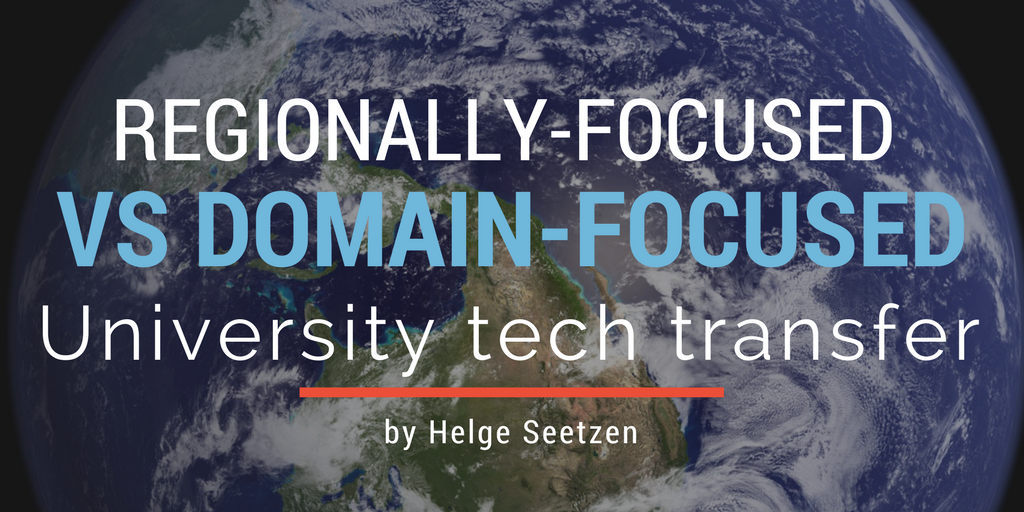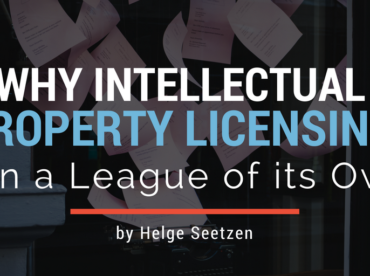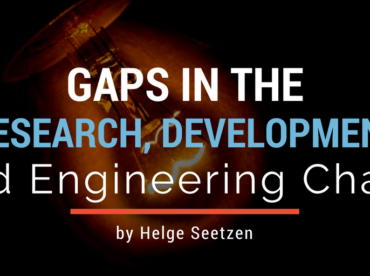Some Technology Transfer Offices (TTO) have been exploring the idea of domain-focused rather than regionally-focused technology transfer recently. This shift is an extremely powerful idea in my mind. In fact, the advantages of domain-focus are the reason TandemLaunch has the specialization it does in consumer electronics market. Yet the predominant model for technology transfer continues to be based on geographic regions (i.e. one TTO per university covering all domains on the university).
The key benefits of a domain-focused TTO are:
1) Deeper opportunity assessment capabilities: On average, US TTOs file a patent application for a little more than every second disclosure that they receive (12k patent applications based on 20k disclosures for 2009 according to the AUTM report for that year). That ratio is in all likelihood far too high, especially considering that less than 200 of those patents achieved licensing deals over $1M. The challenge for TTOs is to increase disclosure count, not patent filing rate. But doing so requires more sophisticated technical and business expertise which most TTOs simply cannot maintain for each of their many domains. But a domain-specific TTO could do just that. If it’s a biotech TTO then there would be biotechnology technologists and market experts who would provide technical assessment of the research that comes inbound. In the current regional-model, most TTOs rely on the inventor to decide if their invention is worthwhile or not, which is not always good as the inventor often thinks their investment is the best thing since sliced bread. So it is important to get a second opinion from someone who understands technology and the associate commercial aspects. These TTO technologists could collaborate with the inventor and build a demonstration or prototype based on the early-stage research that would validate the commercial potential of the invention. You can only have that if the TTOs are domain focused as you cannot afford to hire a dozen different technologists per TTO. But if TTOs focused on a single domain, such as chemistry or life sciences, they could have a couple in-house experts within their team of 10 to provide feedback, evaluation, guidance, and support to the inventor.
2) Deeper relationships with key industry players: Within the specific domain model the TTO’s only has to maintain connections with companies relevant to their domain. They have to maintain constant relationships with the top 10 or top 20 companies in their space, as opposed to having corporate connections that vary across several industries. A domain focus gives the TTO a more definite role, making sure they build and maintain relationships with specific companies. Such a relationship could be that they meet every quarter and discuss new inventions and projects. For example, here at TandemLaunch we maintain mutually beneficial relationships with quite a number of consumer electronics companies. For us, the relationship provides a steady connection to industry. For them, the relationship provides a very convenient way to learn about new inventions. This regular interaction is just not something you can do if you are a general TTO, as you do not have the headcount and travel budget to maintain connections across all industries, for all prospects.
3) More appropriate business structures: The next thing a domain-specific TTO can do is deeply understand the business practices of their domain. One problem for regional TTOs is that they are very often forced to apply the business practice of their biggest domain, often biotech or pharmaceutical, to all their prospective research. I’ve had many personal experiences where I’ve approached a TTO as an IT investor and encountered constraining or irrelevant actions that have nothing to do with my investment. These are often things that the TTO must ‘always-do,’ because of some aspect of the biotech/pharma template, instead of IT (e.g. Pharma is an environment where successes are infrequent but gigantic when they occur. Many TTOs have responded to this by developing convoluted “Blockbuster” mechanisms in their license agreements to capture those home run scenarios. The world of software commercialization is radically different and all this Blockbuster stuff is at best a waste of time and at worst actually sabotages the opportunity by creating future liability for potential licensees when the software technique diffuses as a minor element into their entire product chain which then suddenly gets held hostile by vague Blockbuster rules). The misapplication of business practices happens all the time, and can be solved naturally by domain-specific TTOs. TTO templates will be adjusted to their specific space, and there will be common practices relevant to the space. Additionally, domain-specific TTOs will have, in-house, domain-specific experts with domain specific credibility. This credibility would mean that members of the TTO would be seen more so as value-added contributors, and be more readily invited onto the boards of the portfolio companies.
4) The ability to bundle IP: The last thing domain-specific TTOs could do, is foster the development of holistic IP strategies. From personal experience, I’m not sure to what extent TTOs attempt to integrate IP into the portfolio with the exception of domain-specific entities like some Israeli commercialization entities. I’ve never come across a single TTO offering that has been bundled. In other words, you only encounter one invention. No one at the TTO office approaches you saying, “Here’s a bundle of 6 patents, from 6 different inventors that are relevant to problem X.” Why don’t TTOs do this? I suspect that when you are regionally focused on a single university, most universities have one group working each topic. Who wants to be the electrical engineer who works on data-based sorting solutions when there already is an expert within the university who is working on the same thing? Domain-focus would allow TTOs to break out of this individualistic university culture and integrate meaningful IP portfolio from different groups. Of course licensees could also do the integration directly, as TandemLaunch does, but as assembling bits and pieces from 10 different TTOs with 10 different contracts and 10 different structures is not for the faint of heart.
Given all of these benefits, why aren’t domain-specific TTOs popping up everywhere? I suspect that the biggest barrier is just organisational politics. That doesn’t seem like a good enough reason though. Beyond politics, I can only think of a two challenges for domain-specific TTOs:
1) A less obvious funding source. The lack of connection to a single host university makes the budget source, and resulting accountability, less clear. Personally, I don’t see this as a major problem as TTOs should be managed on the basic of economic performance anyhow rather than feeding of the education budget of the university (and receive their budget from local economic development funds). Even without that major shift, it should be fairly straightforward to group budgets in a city with multiple universities (as well as sharing rewards in the same way).
2) More travel. There can be a greater travel burden for domain focused TTOs to meet inventors. That said, to travel to the inventor who is in the same province or state is much more preferable than having to travel to customers who are around the world and within a variety of domains. Domain-specification also doesn’t have to go completely global to be efficient. For example, Montreal has 7 universities and thus 7 TTOs in the same city. The Travel impact would be trivial if those TTOs where to switch to a domain-focused business model.
On the whole, domain specific TTOs have the potential for better technology assessment capabilities, deeper relationships with key industry players, more appropriate business structures, and the ability to bundle IP with few negative side effects. Also TandemLaunch is not a TTO, our ability to focus on a specific type of research coming from a large number of organizations rather than all research from a single entity has allowed us to penetrate much deeper into development and commercialization activities for our projects. At a different level the same would be true for domain-focused TTOs.



